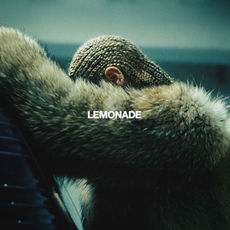Unafraid to be political, stand up to bullies or call out wrongs, the trio have blazed a trail for female artists of all genres. Embracing bluegrass, Appalachian harmonies and the most "hillbilly" of instruments, they've also never turned their back on their roots even as they've transcended "country" to make, truly, American music. Discover the history of The Chicks in 10 songs.
"There's Your Trouble" from Wide Open Spaces (1998) Multi-instrumentalist sisters Martie and Emily Erwin had been playing bluegrass around Texas for six years as the Dixie Chicks—named after the Little Feat song "Dixie Chicken"—with Laura Lynch on vocals. But after session steel-guitar player Lloyd Maines introduced the siblings to his daughter Natalie, a Berklee College of Music dropout, everything changed. Lynch left, Natalie took over vocals and the group signed with Sony's Monument Records. The trio's debut album, Wide Open Spaces, was released in 1998. Second single "There's Your Trouble"—an easygoing tune spiked with Natalie's now-trademark sass—was also their first hit, topping Billboard's country charts in 1998, earning a Grammy and immediately anointing the Dixie Chicks as Nashville sensations.
"Wide Open Spaces" from Wide Open Spaces (1998) With their third single—also a No. 1 country hit—the band had a career-defining signature song. Penned by West Texas songwriter Susan Gibson after she went off to forestry school, "Wide Open Spaces" tells a classic tale of growing up and finding your own wings: "She needs wide open spaces, room to make her big mistakes/ She needs new faces, she knows the high stakes." In The Chicks' hands, it also became a rallying cry for a generation of young women ready to break down all kinds of barriers, something the trio themselves would become expert at. Unabashedly country with its mandolin, fiddle and banjo, this title track showcases some of the group's most angelic harmonies.
"Cowboy Take Me Away" from Fly (1999) In 1999, The Chicks' debuted at No. 1 with their next album, Fly, joined the Lilith Fair tour, and found their crossover moment in "Cowboy Take Me Away." The romantic, fiddle- and banjo-laden cut was written by Martie for her sister's wedding to country singer Charlie Robinson and reached No. 27 on Billboard's Top 100 charts. It topped the country charts, of course, and became a set-list staple for the trio. Co-writer Marcus Hummon has said he originally thought Martie had called him in for help on a song called "Calgon Take Me Away."
"Goodbye Earl" from Fly (1999) The Chicks showed a dark, dark sense of humor with this irresistibly catchy track: the story of two lifelong best friends who team up to kill one's abusive husband by poisoning his black-eyes peas. But unlike "Thelma & Louise," this story has a happy ending—the women get away with it, buy a road-side stand for selling Tennessee ham and strawberry jam, and "don't lose any sleep at night." It may have been written by Dennis Linde, but The Chicks completely made it their own, layering gleeful "na-na" harmonies, Natalie's spitfire vocals, and jaunty organ and cowbell. The result sounds like a lost cut off Tom Petty's Full Moon Fever. While some radio stations were sheepish about playing the song, Hollywood embraced it, with actors Dennis Franz, Jane Krakowski and Lauren Holly starring in the video, along with a cameo from Natalie's future husband, Adrian Pasdar. After winning the Best Country Album Grammy award, Natalie quipped that the song was an "ode to O.J. Simpson."
"Sin Wagon" from Fly (1999) This barn burner was named by Natalie for a line from the movie Grease in which Olivia Newton-John's good-girl Sandy tells John Travolta's Danny she won't make out with him in his "sin wagon" (actually, a '49 Dodge Wayfarer). But unlike Sandy, The Chicks are ready to get down and dirty. "When it's my turn to march up to Old Glory/ I'm gonna have one hell of a story," Natalie wails over the sisters' virtuoso bluegrass banjo and fiddle. Rockabilly bass and drums, plus a blazing tempo, complete the package. The singer has said the band's label was nervous over a lyric that refers to "mattress dancing," but the song managed to chart without ever officially being released as a single.
Create a free account to keep reading






